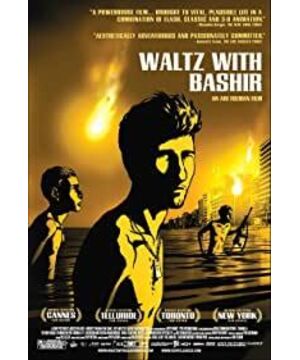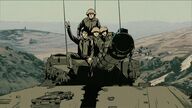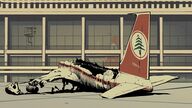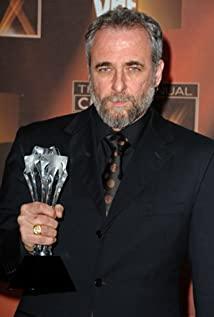I keep asking myself what a documentary is. Now my answer is feeling, real feeling. The director of the documentary used various techniques and methods to create such a subtle sense of reality, allowing the audience to identify with his expressions and propositions. Therefore, although "Waltz with Bashir" is an animation, it can still be considered a respectable documentary. Many scenes of Michael Moore’s films were allegedly posed and planned (there is no lack of conspiracies), which is supposed to violate the documentary guidelines, but the industry still cannot deny that he was shooting documentaries, at least because of him. 'S movies rely on real feelings to express opinions. Many films that carry a camera and follow the respondent’s ass all day long may only be regarded as footage because of the lack of strong expression and the desire to talk. It should be the English "Documentary" meaning, the words of a family.
Another interesting thing about this film is why the protagonist (or director) lost his memory of the Holocaust. The explanation in the "Third Orangutan" just recommended is: the massacre is like a large-scale hypnosis, which makes people both outside and inside show an evasive collective aphasia and amnesia. The reason why most of the massacre incidents in human society are buried outside the mainstream voice is because there are enough reasons to remain silent whether it is the victim or the third party: for the survivors of the massacre, they are often because of their surroundings. Of people die and question why they survived. Compared with sadness, fear and anger, self-doubt and guilt dominate their emotions, so they generally remain silent because of shame; and for third parties (such as reporters or According to the UN Observer, the degree of anti-humanity of the Holocaust has greatly surpassed their cognitive experience and moral system. The powerful deterrence leads to psychological trauma, allowing them to choose to escape, silence or deny. As a result, Super Junior’s concert video may spread all over the world overnight, but major events such as massacres and genocides that are taking place in a corner of the global village are difficult to attract the attention of the world through the mainstream discourse system due to the above reasons. The only exception is the Nazi concentration camps during World War II, because the victims are one of the world's most public opinion and propaganda people. Our Nanjing Massacre, although there is hard evidence, it is even more difficult to get formal attention. This is worthy of our careful study. There are more human tragedies in a country we don’t know about. If you haven't watched this film, do you know what happened in Lebanon?
View more about Waltz with Bashir reviews








